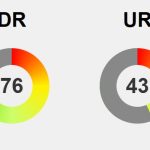Beneath Cancer’s nurturing, empathetic exterior lies a profoundly intricate emotional landscape filled with vulnerabilities and deep-seated fears. They excel at creating safe havens for others, yet often internalize their own hurt and insecurities, retreating into routines and solitude to protect themselves. Their intuitive sensitivity allows them to connect deeply, but also leaves them susceptible to mood swings and emotional overwhelm. How do they navigate these internal storms without losing their resilience? Their strength emerges in moments of self-care, creative expression, and trusted support networks, transforming vulnerability into quiet power. Recognizing the delicate balance between their tenderness and internal struggles offers a richer understanding of their resilience—one rooted in vulnerability, trust, and self-awareness. Could embracing these hidden depths foster more compassionate relationships and a society that values emotional intelligence? This exploration reveals that true strength often resides in tenderness and the courage to be emotionally open.
Unveiling Cancer’s Warmth and Hidden Depths
Cancer often appears as the nurturing heart of the zodiac, radiating warmth and empathy that immediately puts others at ease. Their caring presence creates a sense of safety, making it natural for people to open up and share their feelings. This intuitive ability to tune into others’ emotions is what makes Cancers such valued friends and partners—they seem to instinctively know what’s needed, offering comfort and reassurance with genuine kindness.
Beneath this gentle exterior, however, lies a more complicated emotional landscape. Cancers experience feelings on a profound level, absorbing the moods and energies around them. Their sensitivity allows them to connect deeply, but it also leaves them vulnerable to internal struggles. They tend to hide hurt, insecurity, or disappointment behind their caring facade, often internalizing emotions rather than expressing them openly. This internal depth can be both a source of strength and a quiet challenge.
Their nurturing instincts extend beyond words—whether through small acts of kindness, preparing a comforting meal, or simply being present, they create emotional safe havens for those they love. In return, they seek environments where they feel valued and protected, which helps them maintain their emotional balance amidst life’s inevitable ups and downs. Their ability to create these sanctuaries is rooted in their own need for security, making mutual trust a cornerstone of their relationships.
Despite their outward warmth, many Cancers guard their deepest vulnerabilities carefully. Past disappointments or betrayals leave scars they prefer not to reveal, as exposing wounds feels risky. To protect themselves, they often put on a brave face, retreating into routines or solitude when overwhelmed. This inward turn isn’t weakness but a natural way to process emotions and regain strength, allowing them to emerge more resilient after each internal storm.
Their emotional world can be turbulent, especially during stressful times. Mood swings and feelings of fragility may surface unexpectedly, catching even them off guard. When overwhelmed, Cancers tend to withdraw inward, seeking comfort in familiar routines or environments. This retreat is a form of self-preservation, helping them process their feelings and find stability amid chaos. Their resilience lies in their ability to bounce back, emerging more self-aware and stronger each time.
Understanding Cancer’s emotional landscape reveals a personality that’s both tender and resilient. Their caring nature is rooted in deep empathy and intuition, yet they remain cautious about exposing their inner wounds. Recognizing this duality helps us appreciate the layers beneath their nurturing exterior—reminding us that true strength often resides in vulnerability. It’s a gentle reminder that caring for others starts with caring for oneself, especially in the quiet depths of their inner world.
Delving Into Cancer’s Emotional Core and Vulnerabilities
Cancer’s internal emotional world runs far deeper than their gentle, nurturing exterior suggests. Beneath the surface, they experience a rich tapestry of feelings—joy, sadness, fear, longing—that they often keep hidden from others. Their vulnerabilities tend to revolve around fears of rejection and feelings of inadequacy, which they internalize rather than express openly. Past betrayals or disappointments leave scars that influence how they behave, making trust a delicate and often guarded issue. Instead of sharing their pain, they process it quietly, retreating into solitude or familiar routines, creating an internal tension between their desire for closeness and the need for emotional safety.
Many Cancers carry wounds from childhood or past relationships that threaten their sense of security. When they perceive a threat—whether real or imagined—to their emotional safety, they retreat into their shells, withdrawing from situations or people they once trusted. Their internal struggles are subtle but powerful, often manifesting as mood swings or moments of quiet sadness that can go unnoticed. Despite their caring nature, they are highly sensitive to criticism, internalizing even constructive feedback as a personal attack. This sensitivity deepens their internal doubts and reinforces their instinct to shield themselves from further hurt.
A core part of Cancer’s internal landscape is their longing for acceptance and reassurance. These needs can make them hyper-aware of others’ moods and reactions, sometimes leading to over-analyzing interactions or feeling overwhelmed by emotional stimuli. Their internal wounds—whether from childhood, past betrayals, or life setbacks—are carefully hidden behind a caring facade. Recognizing these hidden vulnerabilities helps explain why they might seem hesitant, overly cautious, or overly protective of their emotional space, even in close relationships.
Their internal focus centers on maintaining stability and security. When threatened, they cling to routines or familiar environments that offer comfort, seeking control amid chaos. Their internal world is a delicate balance of nurturing others and protecting themselves from pain. This duality means that many of their internal struggles go unnoticed, yet they significantly shape how they respond to stress and disappointment. Their resilience lies in their ability to process pain quietly and rebound, often emerging more self-aware and stronger after each internal storm.
Understanding the depths of Cancer’s emotional life reveals not only their tenderness but also their resilience. Their vulnerabilities—hidden wounds, fears of rejection, doubts—are woven into their very being. But it’s from this inner well of sensitivity that they draw their strength to nurture and heal others. When we see beyond their caring exterior and acknowledge their inner struggles, we gain a deeper appreciation for the quiet strength that sustains them. Recognizing their complex emotional landscape fosters greater empathy and helps us understand that genuine resilience often comes wrapped in vulnerability.
Managing Emotional Turbulence with Resilience and Grace
When emotional storms hit, Cancers have a distinct way of managing the chaos within. Instead of confronting their feelings directly, they often pull back into themselves, creating space to process what’s happening. This retreat isn’t about avoidance; it’s a protective measure that allows them to reflect without external pressures. During these moments, they step away from the noise of life, giving themselves the mental clarity needed to regain emotional footing.
Familiar routines and comforting environments serve as anchors during turbulent times. Whether it’s spending time at home, engaging in a favorite hobby, or reconnecting with loved ones, these rituals provide stability. They remind Cancer that feelings, no matter how intense, are temporary, and that their resilience lies in their ability to ride out the storm. Repeatedly turning to these anchors helps them build emotional strength over time, reinforcing their confidence that they can withstand even the most overwhelming feelings.
Creative outlets play a pivotal role in their healing process. Many Cancer individuals find solace in writing, music, or art—channels through which they can express and process internal struggles privately. Transforming chaos into something tangible allows them to gain perspective and release tension in a controlled way. This act of creative expression isn’t just cathartic; it’s a vital tool for resilience, helping them recover more quickly from emotional setbacks.
Their intuition acts as an early warning system for emotional distress. Recognizing subtle signs—such as feeling overwhelmed or withdrawing—enables them to implement calming strategies before feelings escalate. Practices like deep breathing, meditation, or mindfulness help soothe heightened emotions, fostering a sense of calm amid the chaos. This proactive approach turns vulnerability into strength, empowering them to manage their internal landscape with greater ease.
Support networks are essential for Cancers during these times. Trusted friends, family, or partners who offer steady reassurance create safe spaces for them to open up gradually. When they feel genuinely supported and understood, they tend to recover faster. These relationships act as anchors, reinforcing their sense of security and reminding them they’re not alone in navigating their internal storms.
Self-care routines further bolster their resilience. Simple acts like taking warm baths, journaling, or spending time in nature soothe their heightened sensitivity. These gentle gestures build a buffer against future emotional upheavals, strengthening their capacity to handle stress and setbacks. Over time, regular self-care becomes a foundation for enduring emotional strength, helping them bounce back with patience and self-compassion.
Viewing emotional storms as part of their growth journey shifts their perspective. They learn that setbacks and intense feelings are opportunities for deeper self-awareness, not signs of weakness. This mindset fosters patience and self-acceptance, allowing them to face internal challenges without judgment. Each storm they weather becomes a step toward greater stability and inner resilience.
Navigating their internal landscape requires a delicate balance of introspection, creative expression, and support. Their resilience isn’t about denying vulnerability but embracing it as a natural part of being human. Trusting their instincts and leaning on trusted relationships help them realize that storms pass more quickly when they accept their feelings rather than fight them. This ongoing process of managing emotional upheaval ultimately deepens their inner strength, allowing them to emerge more resilient and self-empowered each time.
For those seeking additional guidance on nurturing emotional resilience, exploring resources like this comprehensive guide can be beneficial. It offers practical advice and supportive strategies to help Cancers strengthen their emotional well-being, encouraging continued growth and self-care. You can learn more about how to foster resilience by visiting this emotional resilience guide.
Guiding Support: How to Understand and Nurture Cancer’s Inner World
Supporting Cancer individuals requires a gentle understanding of their often-hidden emotional needs. They tend to mask their vulnerabilities behind a caring and tender exterior, so creating a safe environment where they feel comfortable opening up is essential. Listening patiently and without judgment helps build trust, encouraging them to share their feelings at their own pace. Small gestures—like a warm word, a knowing look, or simply being present—can make a significant difference, reinforcing that they are valued and understood.
Respecting their need for solitude is just as important as offering support. Cancers often retreat into themselves to process intense emotions, and pressuring them to talk or act before they’re ready can push them further into their shell. Giving them space while remaining available shows that you honor their boundaries and trust their process. When they do choose to open up, validate their feelings sincerely, avoiding dismissive or minimizing language. Genuine empathy signals that their emotions are safe with you, laying the groundwork for deeper connection and trust.
Building trust with Cancer hinges on consistency and reliability. They thrive when they can count on predictable routines and know that their emotional safety is a priority. Small acts of kindness and steady presence—checking in, offering a comforting touch, or simply listening—strengthen that trust over time. When they feel secure, they gradually feel more comfortable revealing their inner world, allowing vulnerability to blossom naturally. This gradual openness deepens relationships and helps them feel truly supported in their emotional journey.
Creating environments that nurture their sense of security involves respecting boundaries and avoiding harsh criticism. Clear routines and predictable interactions help them feel grounded, reducing the anxiety that can trigger retreat. Recognizing when they withdraw as part of their internal healing process prevents misunderstandings and shows respect for their need for space. Patience and gentle reassurance are key, fostering an atmosphere where they can process feelings without fear of judgment or rejection.
Encouraging creative outlets like journaling, art, or music offers Cancer a private sanctuary for emotional expression. Supporting their interest in these activities demonstrates respect for their inner world and provides them with healthy ways to process complex feelings. These outlets help transform internal chaos into clarity and serve as powerful tools for resilience. When supported thoughtfully, Cancer individuals can navigate their vulnerabilities more confidently, strengthening their capacity to heal and grow from within.
Embracing Cancer’s Emotional Journey: Insights for a Compassionate Future
Understanding Cancer’s emotional world reveals a person who navigates life with a delicate balance of vulnerability and strength. Their deep capacity to nurture and support others springs from an inner well of sensitivity that often remains hidden beneath their caring exterior. Recognizing these hidden wounds and fears allows us to see beyond their warmth, appreciating the resilience that sustains them through internal storms. It’s this unique blend of tenderness and resilience that makes Cancers both profoundly empathetic and quietly formidable.
As awareness about emotional well-being continues to grow, supporting Cancers effectively depends on patience and genuine understanding. Their protective shell isn’t a sign of weakness but a shield built from past hurts and internal doubts. Creating safe, trusting environments where they can express their feelings at their own pace encourages healing and fosters deeper connection. When we respect their need for space and honor their emotional rhythm, we help them feel secure enough to open up fully, strengthening bonds that can grow stronger over time.
Looking ahead, our ability to understand Cancer’s emotional landscape plays a crucial role in nurturing more compassionate relationships—whether in personal life, at work, or within communities. Embracing their vulnerabilities as a source of strength shifts perceptions, helping us see emotional sensitivity not as a flaw but as a vital part of their resilience. As society increasingly values emotional intelligence, we can develop environments that support their inner worlds, empowering them to thrive without fear of judgment or rejection.
Advances in mental health awareness and tools offer new opportunities to support Cancers more effectively. Digital communities, creative outlets, and accessible resources tailored to their needs can act as powerful anchors, reinforcing their resilience. Encouraging self-expression and providing consistent reassurance become essential in helping them manage future challenges. When we foster understanding and kindness, we not only help Cancers heal but also enrich our collective capacity for empathy and genuine connection.
The journey of understanding Cancer’s emotional landscape is ongoing, inviting us to look beyond surface appearances. Their vulnerabilities and quiet strength remind us that true resilience often resides in openness and kindness. By approaching them with patience and empathy, we create space for growth and healing—both for them and for ourselves. Supporting their inner world isn’t just about helping one zodiac sign; it’s a step toward building a more compassionate society that values emotional depth as a source of strength.






